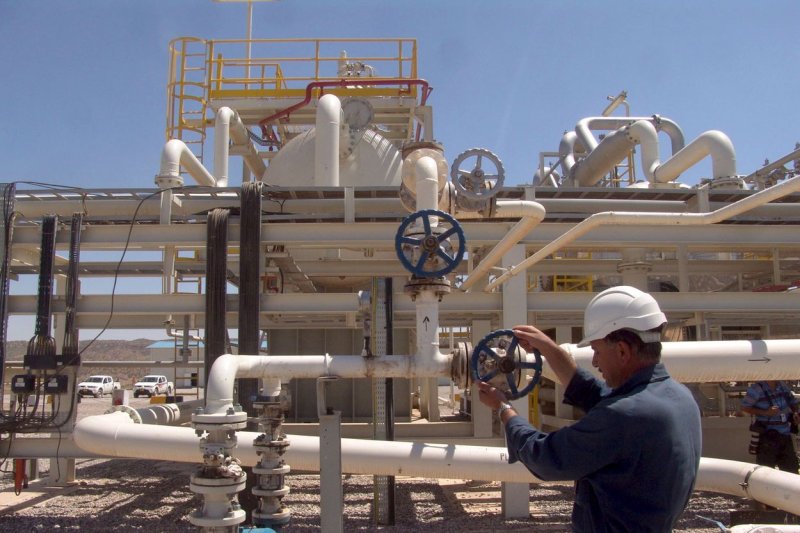Oil demand will soon feel the impact of a rapid and "unstoppable" shift to clean energy as fossil fuels' fourth-fifths share of the global energy mix goes into reverse over the coming few years, the International Energy Agency said Tuesday. File photo by Kamal Akrayi/EPA
Oct. 24 (UPI) -- Oil demand will soon feel the impact of a rapid and "unstoppable" shift to clean energy as fossil fuels' four-fifths share of the global energy mix goes into reverse over the coming few years, the International Energy Agency said Tuesday.
Growing momentum behind clean energy technologies and structural economic shifts will see global demand not only for oil but also for natural gas and coal peak before the decade is out, according to the agency's 2023 World Energy Outlook.
"The transition to clean energy is happening worldwide and it's unstoppable. It's not a question of 'if,' it's just a matter of 'how soon' -- and the sooner the better for all of us," IEA Executive Director Fatih Birol said.
The IEA's forecast, which is based on current policies of governments, paints a dramatically different energy picture by 2030 with almost 10 times as many electric cars on the world's roads and massive investment in wind and solar helping renewables contribute close to half of global energy demand, up from 30% today.
Those shifts will, in turn, see fossil fuels' share -- which has remained static at about 80% for decades -- fall to 73% and their global CO2 emissions peak in just two years from now, according to the Paris-based inter-governmental organization.
Birol said the argument that oil and gas were necessary for energy security no longer held water demonstrated by the fragility of the market in the face of unforeseen global events, noting the fraught current Middle East situation comes exactly 50 years after the Oil Crisis that led to the agency's creation.
"Governments, companies and investors need to get behind clean energy transitions rather than hindering them. There are immense benefits on offer, including new industrial opportunities and jobs, greater energy security, cleaner air, universal energy access and a safer climate for everyone," he said.
"Taking into account the ongoing strains and volatility in traditional energy markets today, claims that oil and gas represent safe or secure choices for the world's energy and climate future look weaker than ever."
However, the IEA said the clean energy system it foresees in 2030 would be realized even sooner if governments deliver on their national energy and climate pledges on time and in full but that they need to go even faster to keep alive the goal of limiting global warming to 1.5 degrees Celsius.
The IEA report puts forward a five-point global plan for getting back on track that it is pitching as the basis for the COP28 climate change conference in Dubai in November.
It proposes tripling global renewable capacity; doubling the rate of energy efficiency improvements; slashing methane emissions from fossil fuel production by 75%; innovative, large-scale financing to triple clean energy in emerging and developing economies.
The fifth pillar calls for planning to ensure an orderly transition away from fossil fuels, including a ban on new coal-fired power plants.















